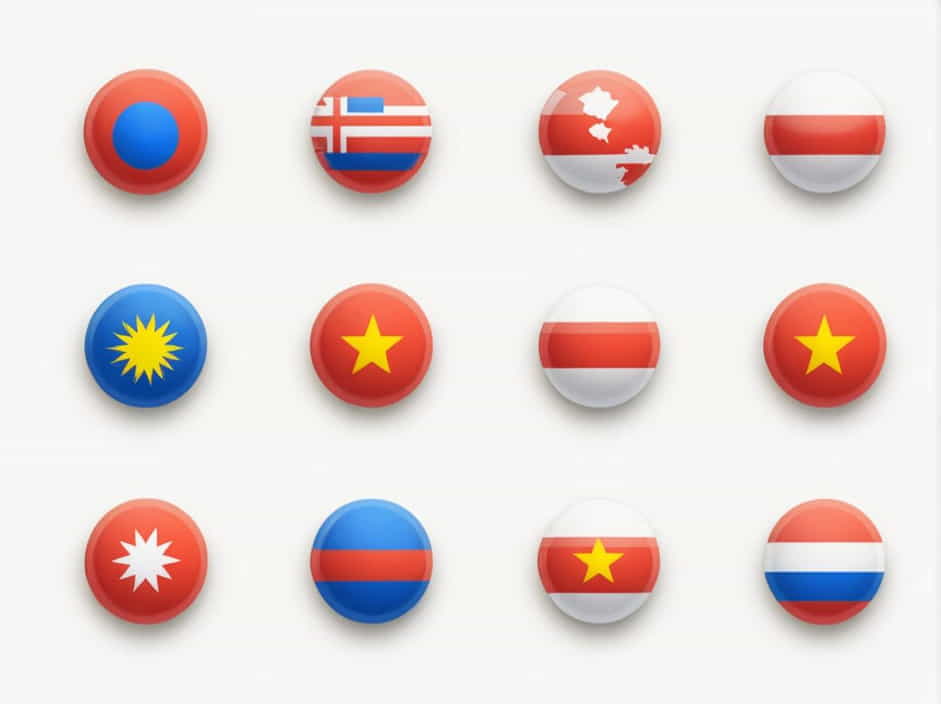An autocracy is a form of government where absolute power is concentrated in the hands of a single leader or a small ruling group. Unlike democracies, where power is distributed through elections and institutions, autocracies limit political freedoms, restrict opposition, and maintain tight control over society.
One of the most well-known examples of an autocratic country is North Korea. This nation has been ruled by the Kim dynasty for decades, with power passing from one family member to another. North Korea is considered one of the most authoritarian regimes in the world, with strict control over its citizens and no political opposition.
What is an Autocracy?
An autocracy is characterized by:
-
Centralized power in the hands of one leader or ruling party.
-
Lack of political freedom, with no free elections or opposition.
-
Strict censorship over media and communication.
-
Use of military and police force to suppress dissent.
-
Limited or no checks and balances on the leader’s authority.
North Korea exemplifies all these traits, making it a classic autocratic state.
North Korea: A Prime Example of Autocracy
1. Leadership and Political System
North Korea, officially known as the Democratic People’s Republic of Korea (DPRK), is ruled by a single-party system under the Workers’ Party of Korea (WPK). However, the real power lies with the Kim family, who have maintained a dictatorship for three generations:
-
Kim Il-sung (1948-1994) – Established the regime and introduced the ideology of "Juche" (self-reliance).
-
Kim Jong-il (1994-2011) – Strengthened control through propaganda and military power.
-
Kim Jong-un (2011-present) – Continued policies of repression and nuclear expansion.
Unlike democratic countries, where leaders are elected, North Korean leadership is inherited, making it a hereditary dictatorship.
2. Absolute Control Over Citizens
North Korea has some of the most severe restrictions on personal freedom:
-
No free speech – Criticizing the government can result in imprisonment or execution.
-
Censorship – All media is controlled by the state, with no access to foreign news.
-
Restricted movement – Citizens cannot travel abroad without government approval.
-
Strict surveillance – The government monitors its people through informants and technology.
These measures ensure that power remains unchallenged, a key characteristic of autocratic rule.
3. Military Dominance and Nuclear Threat
North Korea maintains one of the largest military forces in the world, despite its small population. The country follows a policy called Songun (military-first), prioritizing the army over economic development.
The government uses military strength to:
-
Maintain internal control through fear.
-
Suppress any political opposition.
-
Threaten other nations with nuclear weapons to assert dominance.
This heavy militarization is a strategy often seen in autocratic states, where the military serves as a tool for the leader’s power.
4. Economic Challenges and State-Controlled Economy
Unlike capitalist democracies, where individuals and businesses drive the economy, North Korea’s economy is fully controlled by the state. This results in:
-
Widespread poverty – The majority of citizens struggle with food shortages.
-
Limited private enterprise – Businesses are owned by the government.
-
Trade restrictions – Due to international sanctions, North Korea has minimal global trade.
The government prioritizes military spending over economic welfare, worsening living conditions for its people.
5. The Role of Propaganda
North Korea’s government heavily relies on propaganda to maintain control. The regime promotes:
-
The "Great Leader" ideology – Citizens are taught to worship the ruling Kim family.
-
Misinformation – The state spreads false narratives to control public perception.
-
Isolation from the world – Citizens are made to believe that North Korea is superior to other nations.
This strict information control prevents citizens from questioning authority, which is a defining trait of autocratic systems.
How North Korea Compares to Other Autocratic Countries
While North Korea is one of the most extreme autocracies, other countries also exhibit autocratic characteristics. These include:
-
China – A single-party system with strict government control over the economy and media.
-
Russia – Limited political freedom under President Vladimir Putin, with suppression of opposition.
-
Saudi Arabia – An absolute monarchy where power is concentrated in the hands of the royal family.
Each of these nations has autocratic elements, but North Korea stands out due to its total isolation, hereditary rule, and extreme suppression.
Why Does North Korea Remain an Autocracy?
Several factors contribute to North Korea’s continued autocratic rule:
1. Fear and Repression
The government uses executions, imprisonment, and forced labor camps to silence dissent. People live in constant fear, preventing any opposition.
2. Information Control
With no access to foreign media, citizens have no way to compare their situation to the outside world. The government controls education, news, and entertainment, shaping public perception.
3. Military and Nuclear Power
North Korea’s nuclear program deters foreign intervention. Other countries are reluctant to challenge the regime due to the risk of military conflict.
4. Family-Based Leadership
The Kim dynasty has established itself as a permanent ruling family. The loyalty of government officials ensures continuity of power.
The Future of Autocracy in North Korea
Despite internal struggles, North Korea’s autocratic regime shows no signs of imminent collapse. However, certain factors could lead to change:
-
Economic pressure – International sanctions may weaken the government’s control.
-
Defections and internal dissent – Some high-ranking officials or citizens might challenge the regime.
-
Global influence – Increased contact with the outside world could inspire citizens to seek reforms.
While democratic movements have overthrown other autocracies, North Korea’s extreme isolation and repression make change difficult.
North Korea serves as a textbook example of an autocratic country, with absolute power concentrated in the hands of one leader. Through political repression, military dominance, censorship, and propaganda, the regime maintains strict control over its people.
Autocracies like North Korea highlight the dangers of unchecked power. While some countries evolve towards democracy, others remain firmly under authoritarian rule. Understanding these systems helps the world advocate for freedom, human rights, and political transparency.
